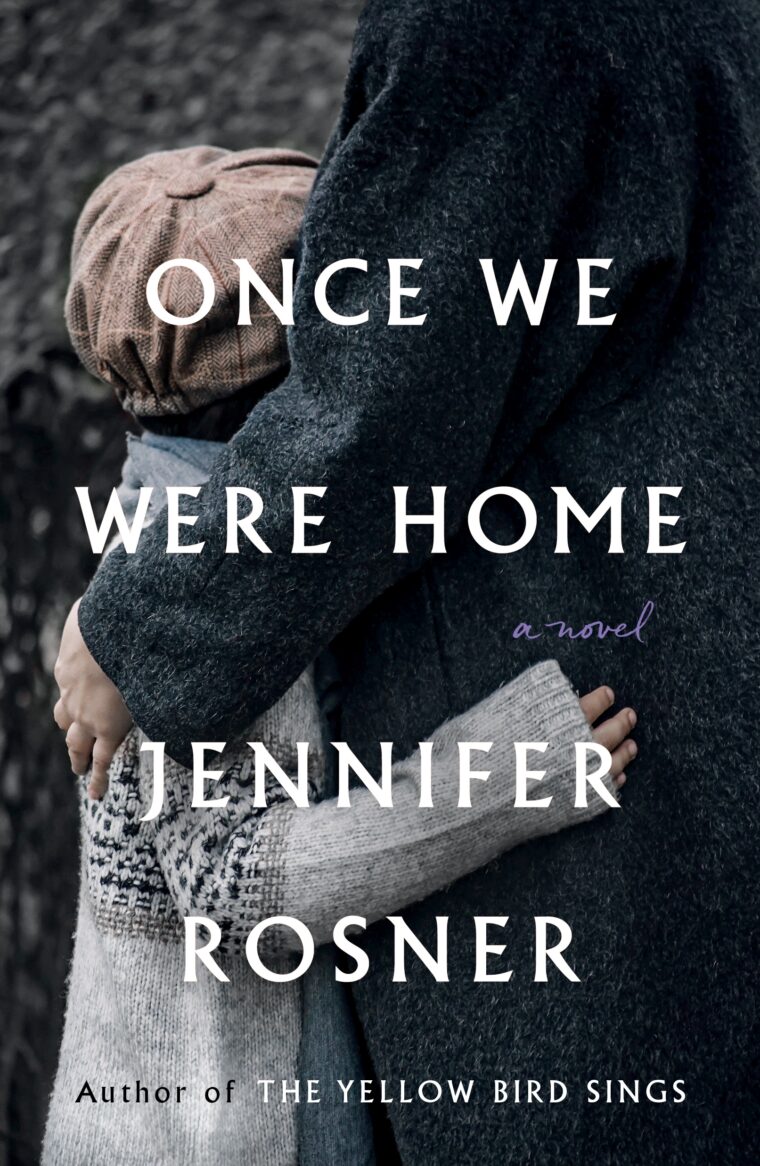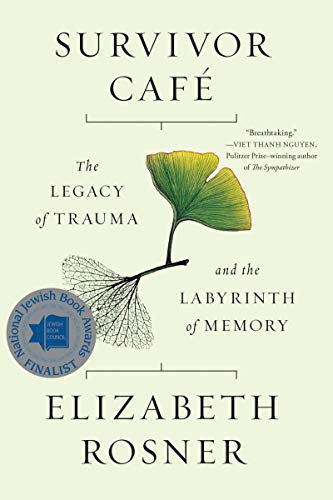Once We Were Home by Jennifer Rosner
“This forgotten history of displaced WWII children and the return to their roots [is] captivating, thought-provoking, enlightening, and bittersweet.” ―Alka Joshi, New York Times bestselling author of The Henna Artist
“Rosner is one of my favorite authors.” ―Lisa Scottoline, #1 bestselling author of Eternal
From Jennifer Rosner, National Jewish Book Award Finalist and author of The Yellow Bird Sings, comes a novel based on the true stories of children stolen in the wake of World War II.
When your past is stolen, where do you belong?
Ana will never forget her mother’s face when she and her baby brother, Oskar, were sent out of their Polish ghetto and into the arms of a Christian friend. For Oskar, though, their new family is the only one he remembers. When a woman from a Jewish reclamation organization seizes them, believing she has their best interest at heart, Ana sees an opportunity to reconnect with her roots, while Oskar sees only the loss of the home he loves.
Roger grows up in a monastery in France, inventing stories and trading riddles with his best friend in a life of quiet concealment. When a relative seeks to retrieve him, the Church steals him across the Pyrenees before relinquishing him to family in Jerusalem.
Renata, a post-graduate student in archaeology, has spent her life unearthing secrets from the past--except for her own. After her mother’s death, Renata’s grief is entwined with all the questions her mother left unanswered, including why they fled Germany so quickly when Renata was a little girl.
Two decades later, they are each building lives for themselves, trying to move on from the trauma and loss that haunts them. But as their stories converge in Israel, in unexpected ways, they must each ask where and to whom they truly belong.
Beautifully evocative and tender, filled with both luminosity and anguish, Once We Were Home reveals a little-known history. Based on the true stories of children stolen during wartime, this heart-wrenching novel raises questions of complicity and responsibility, belonging and identity, good intentions and unforeseen consequences, as it confronts what it really means to find home.

Survivor Café by Elizabeth Rosner
Named a Best Book of the Year by The San Francisco Chronicle
“Survivor Café . . . feels like the book Rosner was born to write. Each page is imbued with urgency, with sincerity, with heartache, with heart…. Her words, alongside the words of other survivors of atrocity and their descendants across the globe, can help us build a more humane world.” —San Francisco Chronicle
As firsthand survivors of many of the twentieth century's most monumental events—the Holocaust, Hiroshima, the Killing Fields—begin to pass away, Survivor Café addresses urgent questions: How do we carry those stories forward? How do we collectively ensure that the horrors of the past are not forgotten?
Elizabeth Rosner organizes her book around three trips with her father to Buchenwald concentration camp—in 1983, in 1995, and in 2015—each journey an experience in which personal history confronts both commemoration and memorialization. She explores the echoes of similar legacies among descendants of African American slaves, descendants of Cambodian survivors of the Killing Fields, descendants of survivors of the bombing of Hiroshima and Nagasaki, and the effects of 9/11 on the general population. Examining current brain research, Rosner depicts the efforts to understand the intergenerational inheritance of trauma, as well as the intricacies of remembrance in the aftermath of atrocity. Survivor Café becomes a lens for numerous constructs of memory—from museums and commemorative sites to national reconciliation projects to small–group cross–cultural encounters.
Beyond preserving the firsthand testimonies of participants and witnesses, individuals and societies must continually take responsibility for learning the painful lessons of the past in order to offer hope for the future. Survivor Café offers a clear–eyed sense of the enormity of our twenty–first–century human inheritance—not only among direct descendants of the Holocaust but also in the shape of our collective responsibility to learn from tragedy, and to keep the ever–changing conversations alive between the past and the present.

About the Authors
Two award-winning writers of Holocaust-themed work engage in a wide-ranging conversation about the representation of genocide, the limits of language and imagination, and the pressing urgency of commemoration and remembrance.
Although they share a last name, these two authors are not related.
What they do share is a commitment to writing literary works (fiction, nonfiction, and poetry) that address complex themes of inherited grief, loss, and resilience.
Jennifer Rosner is the author of the novels Once We Were Home and The Yellow Bird Sings, a National Jewish Book Award finalist in Debut Fiction and Book Club and a Massachusetts Book Award Honor Book. Her other books include the memoir If A Tree Falls: A Family’s Quest to Hear and be Heard, and the picture book, The Mitten String, A Sydney Taylor Book Award Notable. Jennifer's short writings have appeared in The New York Times, The Times of Israel, The Forward, and elsewhere. She lives in western MA with her family.
Elizabeth Rosner is the author of three novels, a poetry collection, and most recently, a book of nonfiction. Survivor Café: The Legacy of Trauma and the Labyrinth of Memory was a finalist for a National Jewish Book Award; interviews with Rosner were featured on National Public Radio and in the New York Times. Her prize-winning novels have been translated into ten languages; her essays and poems have appeared in Elle, the Forward, the NY Times Magazine, and numerous anthologies. She leads writing workshops internationally.
Promotional language provided by publisher.

